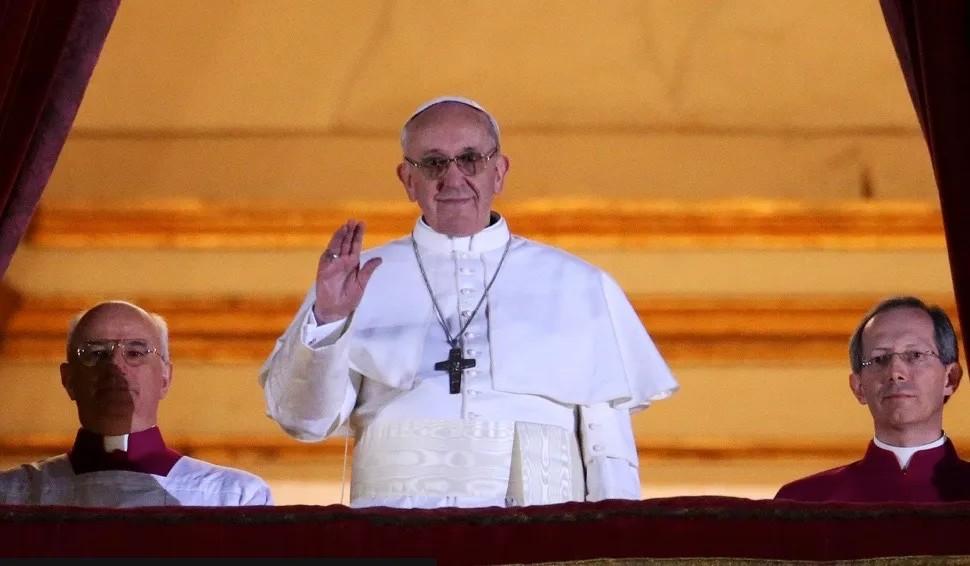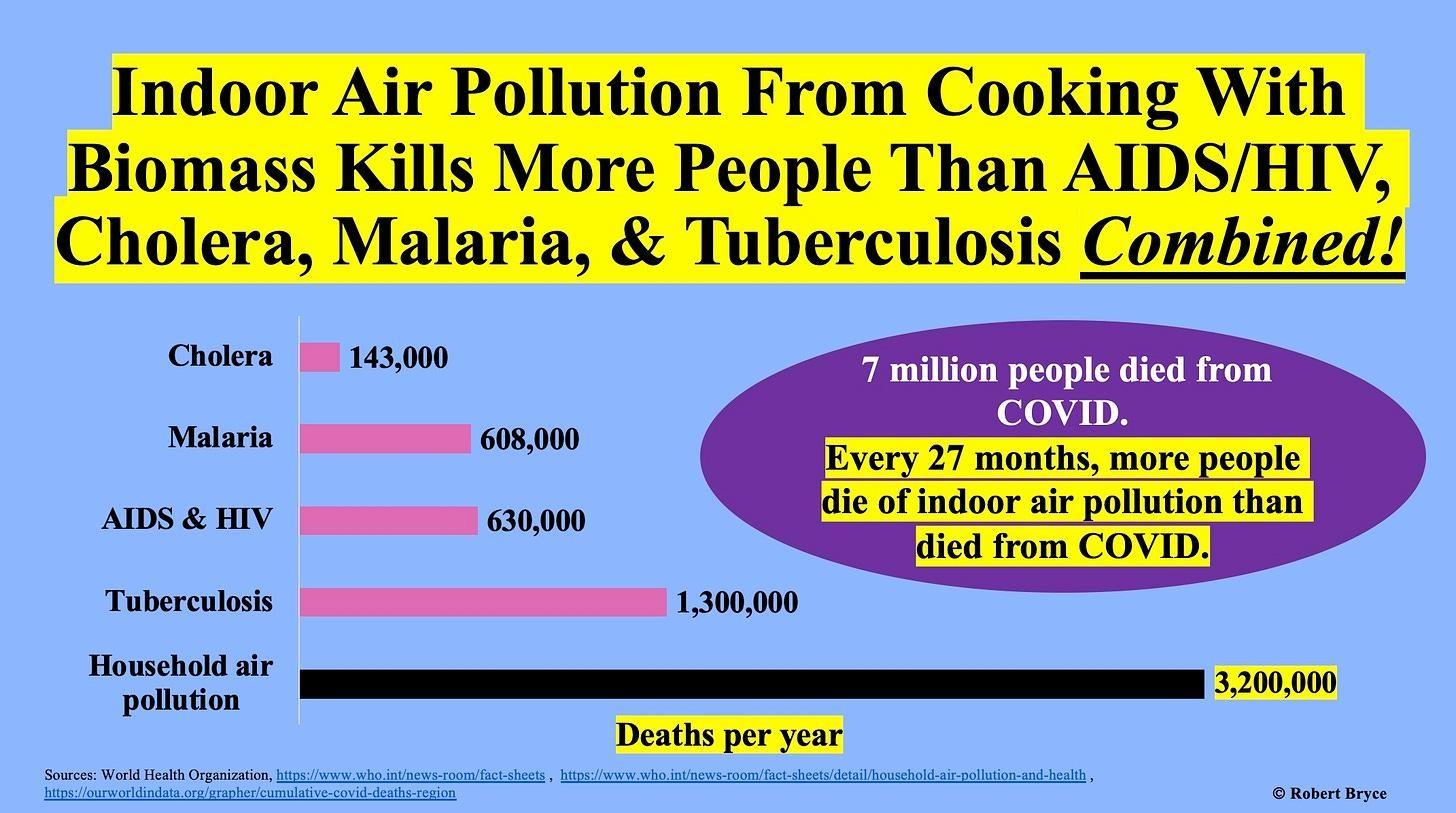After Pope Francis, The Vatican Must Embrace Energy Humanism
Francis was a historic pope. But his views on energy were naïve and anti-human.
April 22, 2025
Pope Francis was a historic figure. He was the first Jesuit pope and the first from the Americas or the Southern Hemisphere. He was the first pope to take the name Francis, a nod to St. Francis of Assisi, a mendicant who espoused the ideal of poverty and service to people. (He was also the patron saint of the environment, animals, and birds.) Francis had considerable
charm and humility, two qualities that the Catholic Church needed in the wake of his imperious predecessor, Pope Benedict. He worked until the very end of his life. Despite a long illness, he appeared in St Peter’s Square on Easter Sunday and died on Easter Monday.
But before we begin the beatification process, let’s take a sober look at what Jorge Mario Bergoglio said about energy while serving as the 266th pope. Doing so shows that the late pontiff’s views weren’t just naïve. They were anti-human.
His 2023 apostolic exhortation, “Laudate Deum,” reads like it was written by Greta Thunberg and a horde of Brussels-based bureaucrats. Francis claims that “millions of people are losing their jobs due to different effects of climate change: rising sea levels, droughts, and other phenomena affecting the planet have left many people adrift. Conversely, the transition to renewable forms of energy, properly managed, as well as efforts to adapt to the damage caused by climate change, are capable of generating countless jobs in different sectors.”
Millions are losing their jobs due to climate change? Where, exactly, is that happening? If the transition is “properly managed,” it could create “countless jobs”? Really? Doing what? Putting solar panels on convent rooftops? Who will ensure “proper” management? Germany? Francis didn’t back up any of those extravagant claims. Laudate Deum contains 44 footnotes. That paragraph doesn’t have a single citation.
Francis’ main felony appears in paragraph 55, where he claims, “the transition towards clean energy sources such as wind and solar energy, and the abandonment of fossil fuels, is not progressing at the necessary speed.”
Let’s ignore the foolishness of attempting to run the global economy on the incurably intermittent energy provided by the wind and sun. Let’s also ignore the landscape-obliterating, bird-and-bat-killing, farmland-paving energy sprawl that comes with large alt-energy projects. Instead, let’s focus on hydrocarbons. Claiming we should give up coal, oil, and natural gas — which, according to the latest IEA data, provide 80% of all global energy — ignores physics, economics, and the needs of the world’s poorest people.
According to the United Nations, about 660 million people still have no access to electricity. Further, as I explained in these pages last September — and in a speech I gave in London in February — about 2.3 billion people are still cooking with fuels like wood, dung, and charcoal. According to the World Health Organization, about 3.2 million people, most of them women and girls, are dying every year due to the indoor air pollution caused by those fuels. But sure, let’s focus on melting glaciers.
More people die every year from indoor air pollution than from AIDS/HIV, cholera, malaria, and tuberculosis combined. This is a public health crisis. Hydrocarbons — particularly fuels like butane and propane — are affordable, clean-burning, and could help save millions of lives per year. And yet, Francis and his colleagues believe we’re not getting rid of hydrocarbons fast enough.
Air conditioning? In his 2015 eco-manifesto, “Laudato Si,” Francis wrote, “People may well have a growing ecological sensitivity, but it has not succeeded in changing their harmful habits of consumption... A simple example is the increasing use and power of air-conditioning.” The leader of the Catholic Church thinks that people who live in Kolkata, Dhaka, Jakarta, Lagos, Phoenix, Houston, Austin, and other cities shouldn’t be allowed to
cool their homes or offices during wretchedly hot summer days. Really?
What about food? This is where Francis’ anti-hydrocarbon dogma hits a moral wall. Vaclav Smil, the Canadian author and polymath, has explained that without synthetic nitrogen fertilizers, “we could not secure enough food for the prevailing diets of nearly 45% of the world’s population, or roughly three billion people.”
How do we produce fertilizer? The answer, of course, is from natural gas, which is used in the Haber-Bosch process allowing us to produce ammonia. Between 70% and 80% of the energy used to make fertilizer comes from natural gas. Quitting hydrocarbons would decimate fertilizer production, starve billions, and trigger a humanitarian catastrophe. If that’s not antihuman, what is?
For years, the Catholic Church has proclaimed “that human life is sacred and that the dignity of the human person is the foundation of a moral vision for society. This belief is the foundation of all the principles of our social teaching.” There is no dignity in energy poverty, only grim drudgery. Hydrocarbons have been humanity’s greatest ally in the fight against poverty and human suffering. Life expectancy, literacy, and infant mortality rates all improve in lockstep with the increased use of hydrocarbons. According to the World Bank, since 1990, more than 1 billion people have been lifted out of poverty. That didn’t happen because of solar panels and wind turbines.
Electricity in particular, is key to freeing women and girls from the pump, the stove, and the washtub. According to the IEA, about 60% of the world’s electricity comes from burning hydrocarbons. And yet, Francis believed we shouldn’t use them?
Last night, the editors at the Wall Street Journal delivered a rather brutal summary of Francis’ views. The late pope, they said, “championed the poor while favoring ideas that keep them poor.” Let’s pray that the College of Cardinals, when they select the next pope, chooses a man who embraces energy realism and energy humanism. Share



